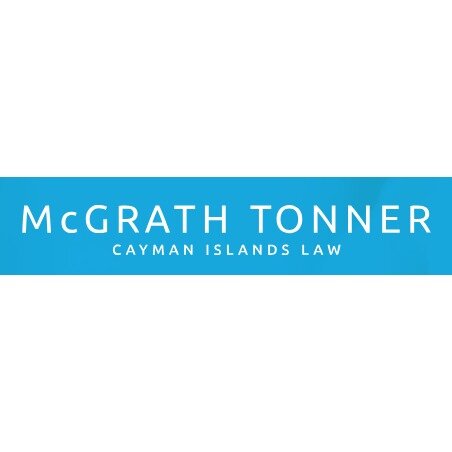Best General Litigation Lawyers in Cayman Islands
Share your needs with us, get contacted by law firms.
Free. Takes 2 min.
Or refine your search by selecting a city:
List of the best lawyers in Cayman Islands
About Litigation Law in Cayman Islands
Litigation law in the Cayman Islands involves the process of resolving disputes through the court system. This can include civil cases, commercial disputes, and other legal matters that require a court's intervention to reach a resolution.
Why You May Need a Lawyer
You may need a lawyer in the Cayman Islands for litigation if you are involved in a legal dispute that requires court intervention. This can include contract disputes, property disputes, personal injury claims, and more. A lawyer can help represent your interests, navigate the legal process, and ensure your rights are protected.
Local Laws Overview
In the Cayman Islands, litigation is primarily governed by the Grand Court Rules and the Cayman Islands Legal Practitioners Law. These laws outline the procedures and rules for filing lawsuits, conducting trials, and appealing decisions. It is important to be familiar with these laws if you are involved in litigation in the Cayman Islands.
Frequently Asked Questions
1. What is the process for filing a lawsuit in the Cayman Islands?
The process for filing a lawsuit in the Cayman Islands involves drafting a complaint, filing it with the court, and serving the defendant with a copy. The defendant then has the opportunity to respond, and the case will proceed to trial if no settlement is reached.
2. What are the potential outcomes of a litigation case in the Cayman Islands?
The potential outcomes of a litigation case in the Cayman Islands can vary, but commonly include a judgment in favor of one party, a settlement agreement, or the case being dismissed. The court will consider the evidence presented and make a decision based on the law.
3. How long does litigation typically take in the Cayman Islands?
The timeline for litigation in the Cayman Islands can vary depending on the complexity of the case, the court's schedule, and other factors. Some cases may be resolved within a few months, while others could take years to reach a final resolution.
4. Can I represent myself in a litigation case in the Cayman Islands?
While you have the right to represent yourself in court, it is advisable to seek legal representation for litigation cases in the Cayman Islands. A lawyer can provide valuable expertise, guidance, and advocacy to help you navigate the legal process effectively.
5. How do I find a lawyer for my litigation case in the Cayman Islands?
You can find a lawyer for your litigation case in the Cayman Islands by researching law firms, asking for recommendations, and meeting with potential attorneys to discuss your case. It is important to choose a lawyer with experience in litigation and a track record of success.
6. What are the costs associated with hiring a lawyer for litigation in the Cayman Islands?
The costs associated with hiring a lawyer for litigation in the Cayman Islands can vary depending on the complexity of the case, the lawyer's fees, and other factors. It is important to discuss fees and payment options with your lawyer before proceeding with legal representation.
7. Can I appeal a court decision in a litigation case in the Cayman Islands?
Yes, you have the right to appeal a court decision in a litigation case in the Cayman Islands. The appeal process involves submitting a notice of appeal, presenting legal arguments to a higher court, and seeking a review of the lower court's decision.
8. Are there any alternative dispute resolution options available for litigation cases in the Cayman Islands?
Yes, there are alternative dispute resolution options available for litigation cases in the Cayman Islands, including mediation and arbitration. These methods can help parties reach a resolution outside of court, saving time and costs associated with traditional litigation.
9. What are the key factors to consider when choosing a lawyer for my litigation case?
When choosing a lawyer for your litigation case in the Cayman Islands, it is important to consider the lawyer's experience, expertise in litigation, reputation, communication style, and fees. It is also helpful to seek recommendations and meet with potential attorneys to assess their suitability for your case.
10. How can I prepare for a litigation case in the Cayman Islands?
To prepare for a litigation case in the Cayman Islands, you should gather relevant documents, evidence, and information related to your case. It is also important to work closely with your lawyer to develop a legal strategy, understand the court process, and prepare for court hearings and trials.
Additional Resources
For additional resources related to litigation in the Cayman Islands, you can contact the Cayman Islands Legal Practitioners Association (CILPA), the Cayman Islands Law Society, and the Cayman Islands Judicial Administration for guidance and support.
Next Steps
If you require legal assistance for a litigation case in the Cayman Islands, it is advisable to consult with a qualified lawyer who specializes in litigation. They can provide you with personalized advice, representation, and support throughout the legal process to help you achieve a favorable outcome in your case.
Lawzana helps you find the best lawyers and law firms in Cayman Islands through a curated and pre-screened list of qualified legal professionals. Our platform offers rankings and detailed profiles of attorneys and law firms, allowing you to compare based on practice areas, including General Litigation, experience, and client feedback.
Each profile includes a description of the firm's areas of practice, client reviews, team members and partners, year of establishment, spoken languages, office locations, contact information, social media presence, and any published articles or resources. Most firms on our platform speak English and are experienced in both local and international legal matters.
Get a quote from top-rated law firms in Cayman Islands — quickly, securely, and without unnecessary hassle.
Disclaimer:
The information provided on this page is for general informational purposes only and does not constitute legal advice. While we strive to ensure the accuracy and relevance of the content, legal information may change over time, and interpretations of the law can vary. You should always consult with a qualified legal professional for advice specific to your situation.
We disclaim all liability for actions taken or not taken based on the content of this page. If you believe any information is incorrect or outdated, please contact us, and we will review and update it where appropriate.
Browse general litigation law firms by city in Cayman Islands
Refine your search by selecting a city.

















